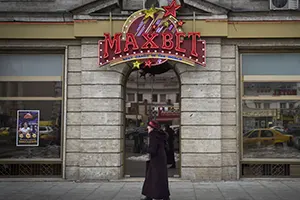 The Chamber of Deputies of Romania’s parliament has voted to ban gambling establishments in settlements of less than 15,000 residents. The rigorous gambling restrictions, concerning slot machines and gaming halls in smaller towns and villages have marked a major transformation in the country’s gambling policy framework.
The Chamber of Deputies of Romania’s parliament has voted to ban gambling establishments in settlements of less than 15,000 residents. The rigorous gambling restrictions, concerning slot machines and gaming halls in smaller towns and villages have marked a major transformation in the country’s gambling policy framework.
After a standstill period of several months, legislators have suddenly shifted the focus on the proposed bill, which committees swiftly examined. The measures gained universal approval, a phenomenon that could be rarely observed in Romania’s contentious political front. The amendment was endorsed by 243 lawmakers, while only two voted against, and four abstained. Simultaneously, industry participants shared their concerns they had not been consulted on the matter.
The legislative changes have been propelled by the urge to restrict gambling in smaller communities. While the ruling Social Democratic Party said the bill was the first step in regulating the industry, representatives of the opposition party (USR) claimed it was not sufficient to regulate it properly.
Alfred Simonis, leader of the ruling Social Democratic Party said: “This is the first law in 30 years against this mafia that has controlled the political world. We are fighting an industry that has a turnover of 10-12 billion euros.”
Other lawmakers have questioned the methodology used to set this threshold of 15,000 residents and challenged its practicality. Ionut Mosteanu, leader of the Save Romania Union (USR) deputies, commented on the decision that only affects settlements totaling 15,000 people: “There was not even a debate in the commission to see how many townships qualify for this 15,000.” He further wondered how this number was agreed upon, stating: “Why this 15, not 16, 17, why not two million and you would ban them definitively?”
Gambling Establishments Have Become Omnipresent Across Romania
 Gambling venues such as sports betting outlets, casinos, lotteries, and bingo halls have become omnipresent across Romania over the past few decades. The National Gaming Office (ONJN), Romania’s gambling regulatory body, acting under the Ministry of Finance, has reported that, currently, there are more than 12,000 land-based gambling locations on the country’s territory. With this rapid expansion, apprehensions of gambling-related harm have emerged as a prominent issue that needs to be addressed.
Gambling venues such as sports betting outlets, casinos, lotteries, and bingo halls have become omnipresent across Romania over the past few decades. The National Gaming Office (ONJN), Romania’s gambling regulatory body, acting under the Ministry of Finance, has reported that, currently, there are more than 12,000 land-based gambling locations on the country’s territory. With this rapid expansion, apprehensions of gambling-related harm have emerged as a prominent issue that needs to be addressed.
No recent studies have been published concerning the prevalence of gambling in Romanian society and the number of problem gamblers. The most recent data on this issue dates back to 2016, with figures pointing to at least 98,000 problem gamblers in a population of less than 20 million. These numbers, however, could be much higher.
A recent research, tackling the prevalence of gambling among children, conducted by Save the Children, indicated that 1 in 7 children in Romania spends money on gambling and 1 in 10 children lives in a household where one of the parents gambles.
Meanwhile, lawmakers from the ruling party have promised that more laws ensuring the transparency and the robust regulation of the gambling industry would follow.